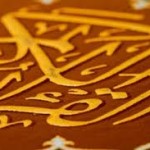words used for Nikah
Shortened Question:
Do the following statements constitute nikāh?
Question:
AssalamuAlaykum. I need an answer to the following question urgenty if possible. If a boy proposes for a girl after he cums and sees her and she accepts and her parents as well as his are present. wud this be considered as nikaah? (if the requisites of nikaah is ijaab and qabool which has taken place in this situation). Jazakallah Khayr
The boy says: (with his parent as his representative, parent actually doing the talking). E.g. Muhammad would like to marry Fatima. The girl parent replies, she says yes.
Answer:
In the Name of Allah, the Most Gracious, the Most Merciful.
As-salāmu ‘alaykum wa-rahmatullāhi wa-barakātuh.
The statements of the boy and girl in reference will not constitute nikāh. The words “would like to” and the reply “yes” imply willingness and desire to marry and not the initiation of nikāh[1].
And Allah Ta’āla Knows Best
Hanif Yusuf Patel
Student Darul Iftaa
UK
Checked and Approved by,
Mufti Ebrahim Desai.
References
[1] وينعقد بلفظين يعبّر بأحدهما عن الماضي وبالآخر عن المستقبل مثل أن يقول: زوّجني، فيقول: زوّجتك
[Al-Hidayah ma`a Al-Inaayah, 2: 213, Dar al-Kutub al-Ilmiyyah, Beirut; Al-Kitab ma`a al-Lubab, 4: 5-6, Dar al-Bash`ir al-Islamiyyah & Dar al-Siraj]
وشرطه الخاصّ حضور شاهدَين لا ينعقد إلا به ... وركنه الإيجاب والقبول كما في سائر العقود، والإيجاب هو المتلفَّظ به أوّلا من أيّ جانب كان والقبول جوابه
[Al-Inaayah Sharh al-Hidayah, 2: 212, Dar al-Kutub al-Ilmiyyah, Beirut]
ولا ينعقد نكاح المسلمين إلا بحضور شاهدَين حُرّين، بالغَين، عاقلَين، مسلمَين، رجلَين، أو رجل وامرأتين عدولا كانوا أو غيرَ عدولٍ، محدودين في قذف أو غيرَ محدودِين
[Al-Kitab ma`a al-Lubab, 4: 6-7, Dar al-Bash`ir al-Islamiyyah & Dar al-Siraj; Bada`I as-Sanā`I fi Tartib as-Sharā`I, 3: 394, Dar al-Kutub al-Ilmiyyah, Beirut; ad-Durr al-Mukhtar ma`a Radd al-Muhtar, 3: 21-22, H.M. Saeed Company]
[Fatāwa Mahmūdiyyah, 10: 496 & 617-8, Dar al-Iftaa Jamiah Faruqiyyah, Karachi]
ويندب إعلانه وتقديم خطبة وكونه في مسجد يوم الجمعة
[Ad-Durr al-Mukhtar ma`a Radd al-Muhtar, 3: 8, H.M. Saeed Company]
[Fatāwa Mahmūdiyyah, 10: 590, Dar al-Iftaa Jamiah Faruqiyyah, Karachi]
DISCLAIMER:
The Ask Our Imam site hopes to respond to queries relating to Islamic law. It is not an Islamic Law Shari`ah Court. The questions and answers found on this website are for educational purposes. However, many of the rulings rendered here are distinct to the specific scenario and thus should be read in conjunction with the question and not taken as a basis to establish a verdict in another situation or environment. This site bears no responsibility in these responses being used out of their intended context, nor to any party who may or may not follow the responses given and is being hereby exempted from loss or damage howsoever caused. None of the responses rendered may be used as evidence in any Court of Law without prior written consent of Our Imam. Any reference to another website or link provided in our responses or article should not be taken as an endorsement of all the content on that website; in fact, it is restricted to the particular material being cited.
Posted in Nikah & Talaq (Marriage & Divorce) on 3rd Mar 2016 by Our Imam | 2314 Views





